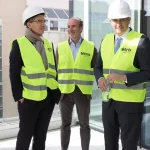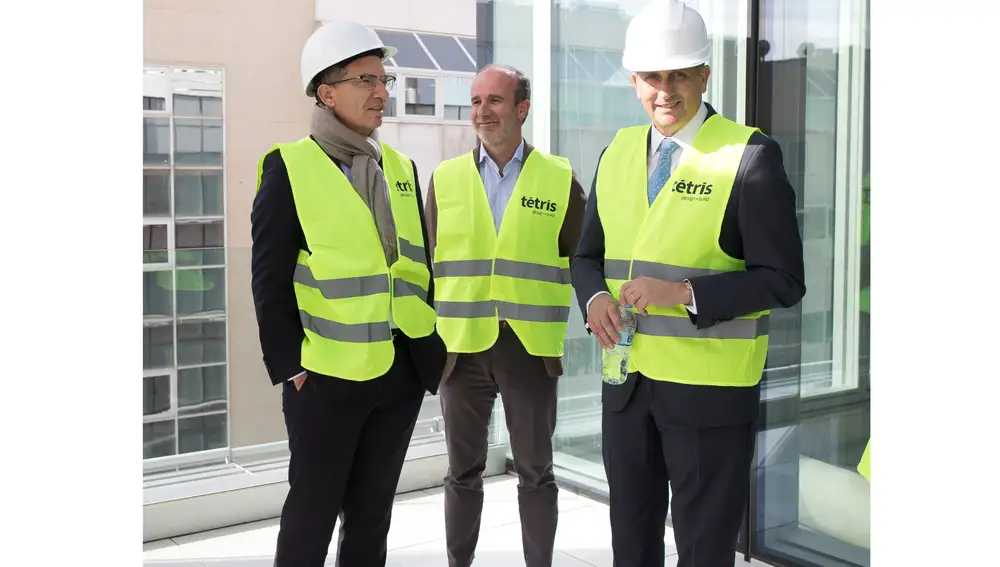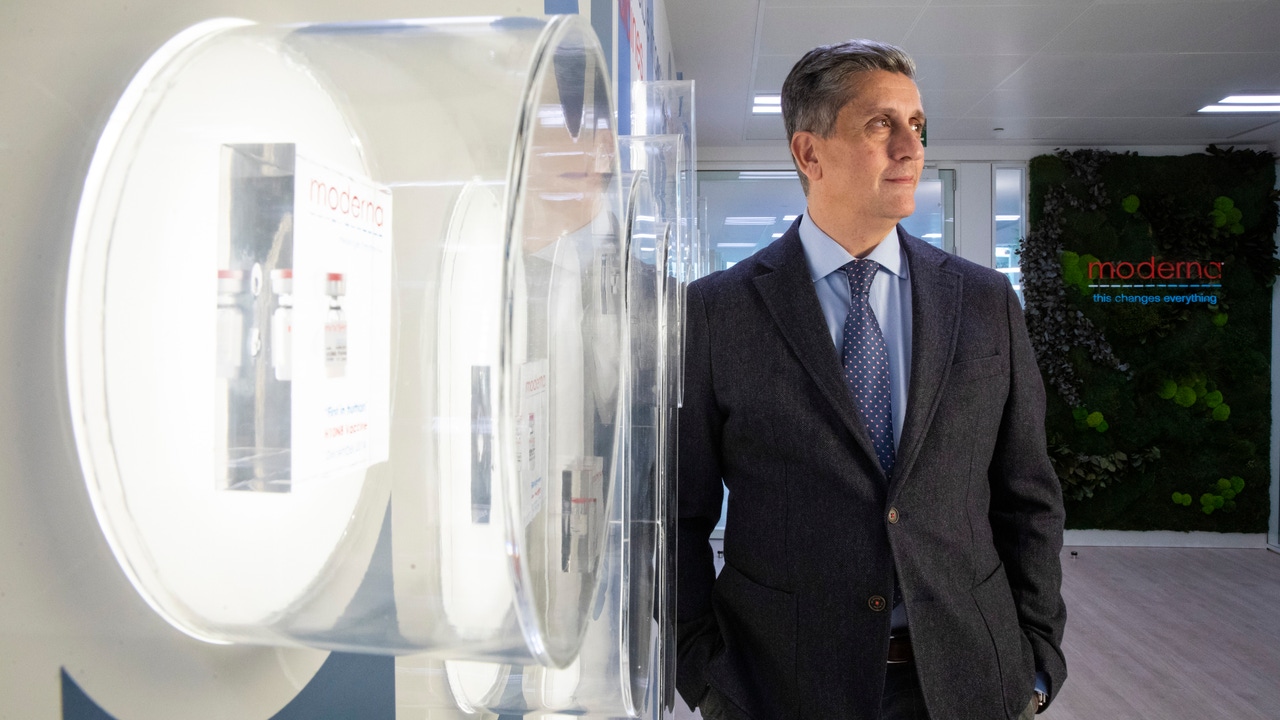
One of the companies that first developed a vaccine against covid, AstraZeneca, has decided to withdraw it because there are more modern ones. In their case, the strategy is totally different and they continue to invest in new solutions against SARS-CoV-2
At Moderna we did hard work in the pandemic, becoming one of the references for vaccines that provided a global response, like other laboratories. I want to emphasize once again the crucial role they have played and continue to play in containing the impact of Covid-19, as well as preventing and protecting against infectious diseases, and even eradicating them in some cases. Likewise, and although we are in an endemic scenario, SARS-CoV-2 continues to be a priority for the company. We will continue to invest in research and development to provide the best possible solutions against Covid-19.
They are developing a combined vaccine against flu and Covid-19 that is already in phase 3. When will it be available?
As you say, keep moving forward. At the end of last year, we announced positive results from phase 3 of our combined flu and Covid vaccine candidate for which we hope to obtain the relevant approvals in 2025. With this type of vaccine we seek to protect against multiple diseases with a single inoculation , which could simplify the process and improve vaccination rates, that is, people will be able to be immunized against two diseases at the same time, with a single puncture. This is also especially relevant in adults, specifically those over 60 years of age, to help prevent serious illnesses and possible derived complications.
Their “vaccine” for melanoma is already being tested on patients. What times do they handle if the data is positive?
The key to this new approach lies in INTs (individualized neoantigen therapies), a revolutionary approach that uses the genetic information of each patient’s tumor to develop personalized vaccines. These therapeutic vaccines do not seek to prevent, but rather to specifically treat the disease by activating the immune system to selectively attack cancer cells. This personalized approach has the potential to significantly improve the effectiveness of cancer treatments by adapting to the unique characteristics of each patient and her disease, opening up promising new treatment options. Our Phase 2 study has yielded encouraging preliminary results, demonstrating that our therapeutic vaccine has the potential to significantly increase relapse-free survival in patients with high-risk melanoma. Additionally, we are in the process of developing personalized therapies and are currently recruiting participants for Phase 3 trials focused on the treatment of melanoma and non-small cell lung cancer. In this sense, it is true that our forecast is to have a cancer vaccine by 2030, something exciting, but we must be cautious and wait for the results to confirm the safety and effectiveness of the treatments.
Are you going to present any studies at ASCO 2024?
We are presenting three abstracts with the latest advances on the new cancer treatments that we are developing in collaboration with MSD.
“Our forecast is to have an mRNA treatment against cancer by 2030”
A month ago they announced the start of the last phase of testing for four new vaccines against latent infections, such as chickenpox, herpes or norovirus…
I would like to highlight this type of vaccines for the type of virus they deal with. Once a human being is infected by a latent virus, it remains in the body and can cause lifelong medical complications. Moderna is committed to developing a portfolio of vaccines and therapeutic candidates against latent viruses, including varicella-zoster and herpes simplex, as well as norovirus. The chickenpox vaccine has shown strong immune responses and is being prepared for a phase 3 trial. The herpes vaccine is in a phase 1/2 to test its safety and immunogenicity. In addition, we have reported that one dose of the trivalent norovirus vaccine has generated a robust immune response, also advancing towards phase 3. These programs are on track to provide preventive solutions for pathologies with a significant burden on public health.
In the last interview I did with him He assured that in the next five years they planned to launch 15 vaccines and it seems that he was serious. Are they continuing with the planned plan?
That’s right, and we are going to launch up to 50 new candidates in clinical trials. This is due to the wide possibilities offered by mRNA technology, which can be designed to encode any desired protein, thus opening a wide range of therapeutic applications. From vaccines to treatments for respiratory and latent viruses, oncological and rare diseases, among others. Additionally, this technology allows us to develop vaccines in a short period of time as we saw during the pandemic.
Another of its areas of development is rare diseases. Which ones are you working on or are your studies more advanced?
We are excited about several clinical trials in this area. Interim data from a first-in-human Phase 1/2 clinical trial evaluating the safety and efficacy of an investigational mRNA therapy for propionic acidemia have recently been published in Nature. In the study, for which we are expanding the number of participants, positive responses have been observed in the treated patients, reducing the number of metabolic decompensation events by 70%. In addition, we are developing different vaccines for six rare diseases and will continue working in this therapeutic area.
What role does our country have in the company?
Moderna’s commitment to Spain is unparalleled among the rest of its European partners. Our commitment is reflected in the significant investment of 500 million euros aimed at advancing science and improving people’s lives, as well as in the collaboration with Rovi for the manufacture of mRNA vaccines.

It is one year since the inauguration of its Madrid laboratory. Is it already at full capacity?
The International Center of Analytical Excellence, MadridLab, is the company’s flagship in Spain. The laboratory is operational and ready to respond to the production needs that the situation requires. In addition, it is sized to be able to assume much more workload depending on these needs and the new vaccines and therapies that come onto the market. Since its inauguration, we have managed to strengthen our operational capabilities at a national and international level and deepen relationships with EU regulatory entities, which has been fundamental for the expansion of our manufacturing network for products based on messenger RNA.

